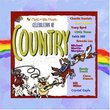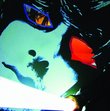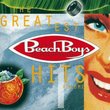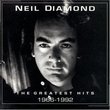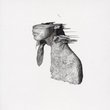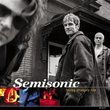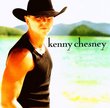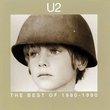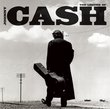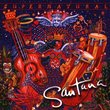| All Artists: Johnny Cash Title: American VI: Ain't No Grave Members Wishing: 17 Total Copies: 0 Label: American Recordings/Lost Highway Original Release Date: 1/1/2010 Re-Release Date: 2/23/2010 Genre: Country Style: Number of Discs: 1 SwapaCD Credits: 1 UPCs: 0602527315621, 602527315621 |
Search - Johnny Cash :: American VI: Ain't No Grave
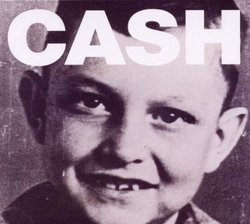 | Johnny Cash American VI: Ain't No Grave Genre: Country American VI: Ain't No Grave, is the sixth and final installment of Johnny Cash's critically-acclaimed American Recordings album series. As with the previous five albums in the American Recordings series, American VI was pr... more » |
Larger Image |
CD DetailsSynopsis
Album Description American VI: Ain't No Grave, is the sixth and final installment of Johnny Cash's critically-acclaimed American Recordings album series. As with the previous five albums in the American Recordings series, American VI was produced by Rick Rubin. American VI is deeply elegiac and spiritual, with each song its own piece of the puzzle of life's mysteries and challenges - the pursuit of salvation, the importance of friendships, the dream of peace, the power of faith, and the joys and adversities that entail simple survival. It is an achingly personal and intimate statement, as, from the end of the line, Johnny Cash looks back on a most extraordinary life. Similar CDs
Similarly Requested CDs
|
CD ReviewsCash Classic Earleen Cox | 06/22/2010 (5 out of 5 stars) "I love all the recordings Johnny Cash did in his later years. They have a heartfelt sincere quality." Aloha Oe Johnny Fernando Miragaia | São Paulo, SP Brazil | 06/19/2010 (5 out of 5 stars) "Well, this is it. Really. The real one. Unmasked. Unearthed. Unheard. This is Johnny Cash farewell song. The last collaboration between Johnny and Rick Rubin. I'm pretty sure nor Johnny nor Rick, would imagine how far they'd go when they started. Neither did us. And the farther they went the better they got. Which seemed at first, to be and odd collaboration turned out to be one of the greatest recordings Johnny has ever made. Let's get to it. The final journey opens with traditional "Ain't No Grave", often credit to "Brother" Claude Ely, was originally recorded by Ely, a religious singer-songwriter and a Pentecostal Holiness preacher, in 1953. It has its own hypnotic beat backed by a sweet banjo, played by Scott Avett. Great start for an album that would bring us great moments along with some good surprises, such as the next song, "Redemption Day", by Sheryl Crow. It's not that Sheryl doesn't write good songs, but Johnny's version looks more like a song of his own. That's where Rubin gets in. This is the perfect combination between a great producer and a unique artist. The next track, "For the Good Times", by Kris Kristofferson, is one of my favorites. A simple and yet great country tune, splendid sung by Johnny. "I Corinthians 15:55", the only original by Johnny, is a sweet waltz with a lyric inspired by the Holy Spirit through Paul, the apostle. "O death, where is thy sting? O grave, where is thy victory?" may sound like Shakespeare, but God did it first. "Can't Help but Wonder Where I'm Bound", by Tom Paxton, was recorded by Paxton himself for his album Ramblin' Boy (1964). Johnny's version resents that 60's "folksy' feeling of Paxton's version, but stills good to listen. "Satisfied Mind", a Red Hayes and Jack Rhodes composition was originally recorded by Porter Wagoner in 1955. If we could say there is one minor performance in this great album, this is the one. Only slightly minor. Maybe I was too spoiled by The Walkabout's unparalleled version from their 1993 album Satisfied Mind which deserves a review of its own. Don Robertson and Walter E. Rollins's "I Don't Hurt Anymore" is a great moment. I've always liked this song and I used to sing it myself, at home, in São Paulo, with my good friend Bob Moreno. It was originally recorded by Hank Snow in 1954 and was also an R&B hit for Dinah Washington the same year. Johnny's version sounds a lot like Bob Dylan and The Band's version from "The Genuine Basement Tapes". I'd dare to say they're in the same key. "Cool Water", by Bob Nolan, was originally written in 1936. The most famous version is by The Sons of the Pioneers, from 1948. I like Johnny's a lot better. It's also great to hear his version of Ed McCurdy's "Last Night I Had the Strangest Dream". I first heard this song on Joan Baez Rare, Live & Classic Box Set, from 1993 and hadn't heard the song ever since. Finally, the greatest moment of the album is Queen Lili'uokalani's "Aloha Oe" written around 1877 which was recorded in many ways and by so many artists, including Elvis Presley in 1961's Blue Hawaii. Johnny's version is, by far, the greatest of them all. Simply out of this world. This is truly inspired by heaven. It is so sad and overwhelming and it does actually makes you burst into tears. Literally. I rest my case. This was Johnny Cash final statement. The kind of statement coming from a man whose faith in God was his strongest legacy to us all. God bless you Johnny. Aloha Oe."
|

